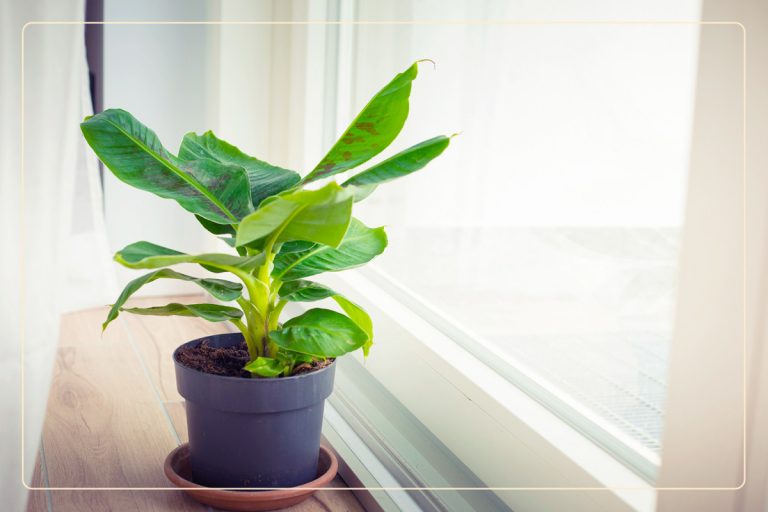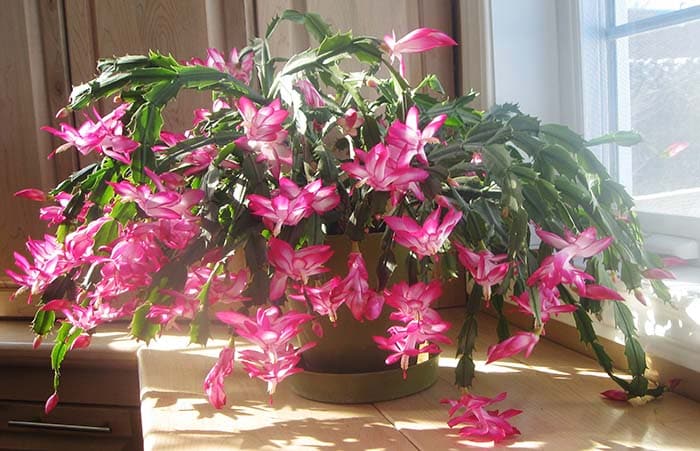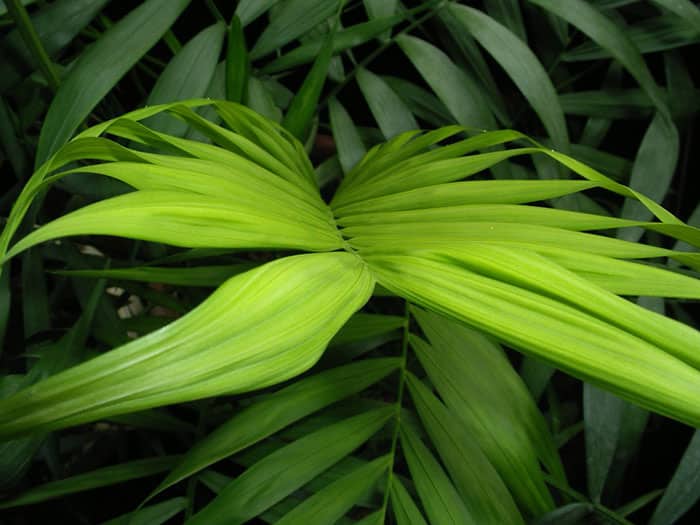If you are considering planting your Bios Urn ® with a plant or flower and have a pet at home, you may want to consider pet-friendly houseplants that are not toxic.
While all of our biodegradable urns are compatible with every single species plant, many species can be toxic to pets that may decide to munch on a leaf or two. Luckily, there are a number of pet-friendly houseplants to choose from.
We will however add that these species are technically safe for cats and dogs, but it’s still best to eliminate temptation and place all houseplants out of reach. If your pet ever does nibble on a plant, even one unlikely to cause health issues, make sure to watch closely for any signs of a negative reaction. Just because a plant is nontoxic, doesn’t mean it won’t cause a tummy ache if your pet decides to snack on it.
Keep your furry friends safe by choosing a pet-friendly houseplant that is nontoxic to them. Take a look below! Many of these have great names too
Bringing a new plant into your home can add beauty and create a relaxing living space However, as a responsible pet owner, you want to ensure any new addition is safe for your furry companions. The banana leaf plant is popular for its large, dramatic leaves and tropical vibe But is it pet-safe? Here is a comprehensive guide on banana leaf plant safety and tips for keeping your pets happy and healthy in a home with greenery.
Is the Banana Leaf Plant Toxic to Pets?
The good news is that the banana leaf plant is considered non-toxic for dogs cats and horses according to the ASPCA. The plant itself contains mostly water and does not produce any known toxic substances harmful to pets when ingested.
However, while not directly toxic, the banana leaf plant is not entirely without risks. Parts of the plant can cause minor digestive upset if large amounts are consumed. The sharp leaf edges may also pose a hazard for curious pets. But overall, the banana leaf plant is less problematic than many other houseplants.
Potential Issues for Pets with the Banana Leaf Plant
While non-toxic, it is still wise to exercise some caution having a banana leaf plant around pets:
-
Ingesting the leaves, stem, or other parts may cause mild gastrointestinal issues like vomiting or diarrhea. This is generally only a concern if eaten in excess.
-
The stiff, sharp edges of the leaves can scratch or cut your pet. This is mostly a risk for cats who may rub against or play with the plant.
-
Allergies are a possibility if your pet is sensitive to some compound in the plant. Monitor your pet for any signs of reaction.
For most pets, ingesting small amounts of a banana leaf plant will cause no more than temporary stomach upset. But it’s smart to keep a close eye on any interactions.
Tips for Keeping Pets Safe Around the Banana Leaf Plant
While relatively safe, it is smart to take some basic precautions when bringing a banana leaf plant into a home with pets:
-
Keep the plant out of reach of pets in an area they cannot access, like on a high shelf. This removes the temptation.
-
Monitor your pets closely when they are around the plant. Look for any interest in nibbling on or playing with the banana plant.
-
Remove and securely dispose of any leaves or plant debris that fall to the floor before pets can eat them.
-
Provide alternative toys and scratching posts to distract curious pets.
-
Use deterrents like bitterness spray on and around the banana plant’s leaves.
-
Train pets to avoid the plant using commands like “leave it.” Reward them for obeying.
-
Consider keeping the banana leaf plant in a separate room pets do not enter if needed.
With some simple precautions, you can have your beautiful banana leaf plant and a safe environment for pets.
What to Do if Your Pet Ingests a Banana Leaf Plant
If you notice your pet ingesting any part of a banana leaf plant, take action:
-
Remove them from the area to prevent further ingestion.
-
Contact your veterinarian, especially if signs of illness occur like vomiting or diarrhea.
-
Monitor for any adverse reactions like oral irritation, upset stomach, or difficulty swallowing over the next 24 hours.
-
Do not induce vomiting without veterinary guidance.
While major toxicity is unlikely, get professional advice to ensure your pet returns to full health after nibbling on the banana plant. Call emergency vet services immediately if severe symptoms appear.
Other Safety Considerations for Pets and the Banana Leaf Plant
In addition to ingestion risks, keep these other safety notes in mind:
-
The sap from the banana leaf plant can cause skin irritation. Keep pets away as the plant is cut or damaged to prevent exposure.
-
Smaller pets like guinea pigs may be at higher risk if they ingest parts of the plant. Take extra precautions like keeping the plant completely out of reach.
-
Monitor cats or kittens closely, as they may try to play with the long, dangling leaves and get cut on their sharp edges.
-
Introduce any new plants slowly and supervise initial interactions to ensure your pet does not have an allergic reaction.
-
Inquire with your veterinarian about any known sensitivities your individual pet may have to components in the banana leaf plant.
Benefits of the Banana Leaf Plant for Pet Owners
While plant safety is crucial, banana leaf plants also provide benefits for pet owners beyond their ornamental appeal:
-
They help purify indoor air by removing toxins like benzene, xylene, and trichloroethylene from the environment.
-
Their lush tropical look can have a relaxing, calming effect and enhance mood – for both pets and their owners!
-
Caring for houseplants can provide mental stimulation and stress relief.
So along with taking proper precautions, be sure to enjoy the beauty and air-purifying qualities this eye-catching plant brings to your shared home.
Alternatives to the Banana Leaf Plant for Pet Owners
If you decide a banana leaf plant may not be the best fit in a home with pets, consider these safe, pet-friendly alternatives:
-
Philodendrons – Offer beautiful, heart-shaped leaves without toxicity.
-
Ponytail Palms – Their interesting trunks and fountain-like leaves create drama without endangering pets.
-
Spider Plants – These easy-care plants are a non-toxic option safe for curious furry friends.
-
Pothos – An easy-to-grow trailing vine with showy leaves that poses no risk for pets.
-
Boston Ferns – Their arching fronds make a graceful, pet-safe choice.
There are many beautiful options to green up your home that will allow you and your pets to live in harmony with indoor plants.
With proper placement and supervised interactions, the banana leaf plant can be a safe, attractive addition to a pet-friendly home. Be sure to monitor your pets closely and take preventative steps to avoid any plant-related illnesses or injuries. Using good judgment and caution will allow you to decorate with this tropical plant worry-free while keeping your furry companions happy and healthy.

Christmas Cactus
Unlike its dangerous holiday counterpart amaryllis, Christmas cacti are nontoxic plants to have around curious cats and dogs. You still shouldn’t let your pets chew on it (Christmas cacti can cause intestinal discomfort if eaten) but overall it’s a safer choice than many other festive plants. Christmas cacti can easily be confused with Thanksgiving cacti, but both are safe for pets and have similar care requirements. Both cacti stay relatively short (under 12 inches), but can spread up to two feet, and grow best with regular waterings and bright, indirect light.

1 Parlor Palm
Pet owners looking to add a small tree indoors may want to pick up a parlor palm. This pet-friendly, low-maintenance houseplant is also a good starting point for beginners. It grows best in bright, indirect light, but also tolerates low light. Water when the top inch of soil is dry, and your parlor palm could reach up to eight feet (though four feet is more common).

5 Must-Have Pet Friendly Indoor Plants l Easy Non-Toxic to Pets Houseplants
FAQ
Are banana leaf plants toxic to dogs?
Are banana leaves poisonous to cats?
Are dwarf banana plants safe for pets?
Are ferns toxic to dogs and cats?
